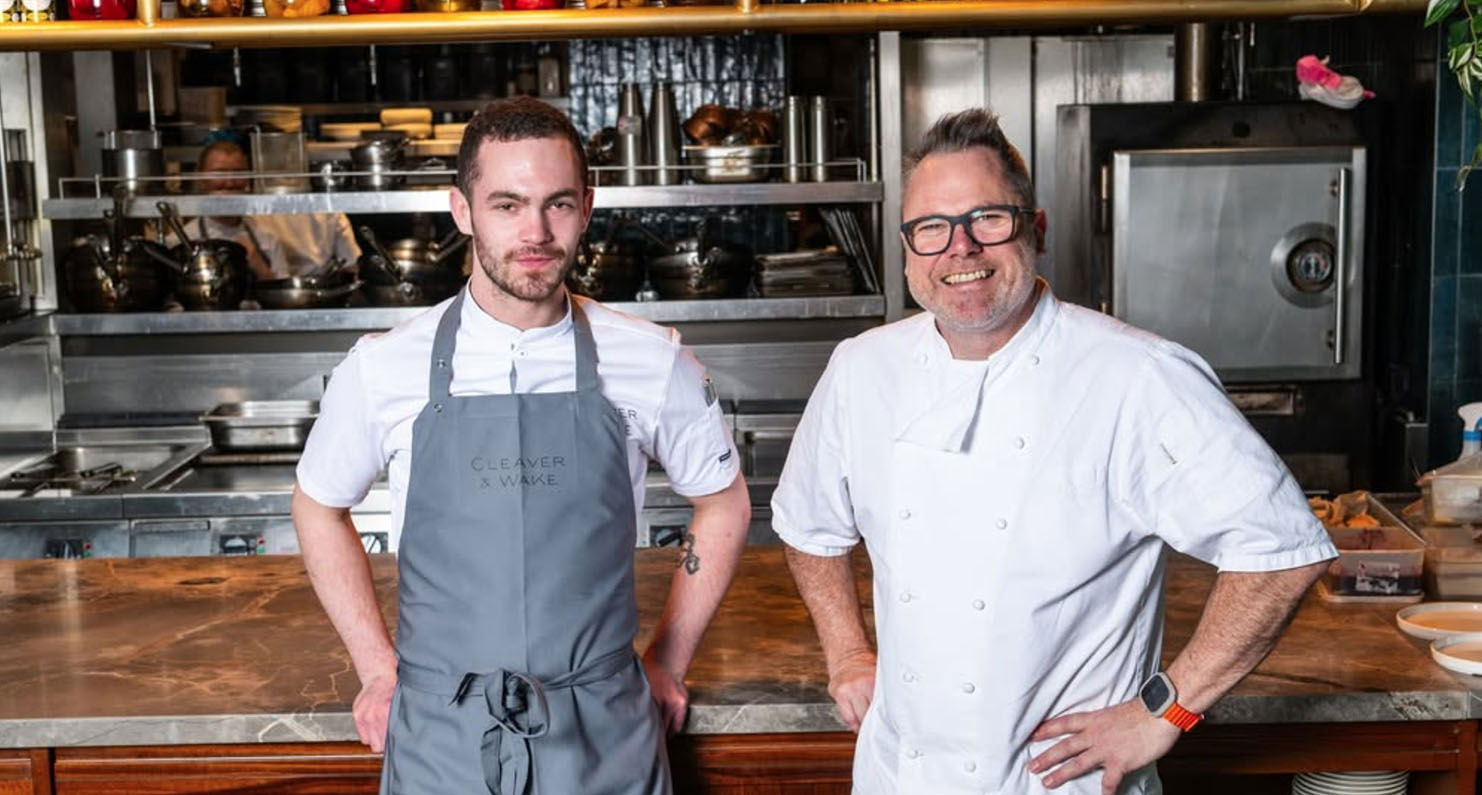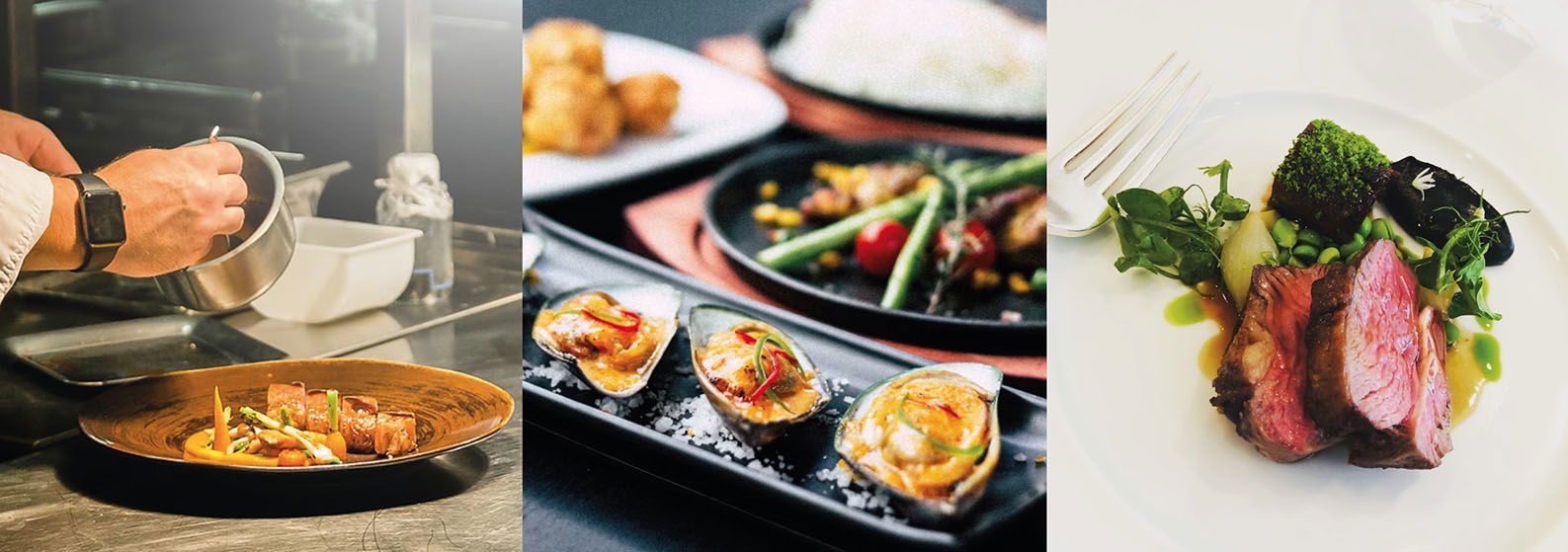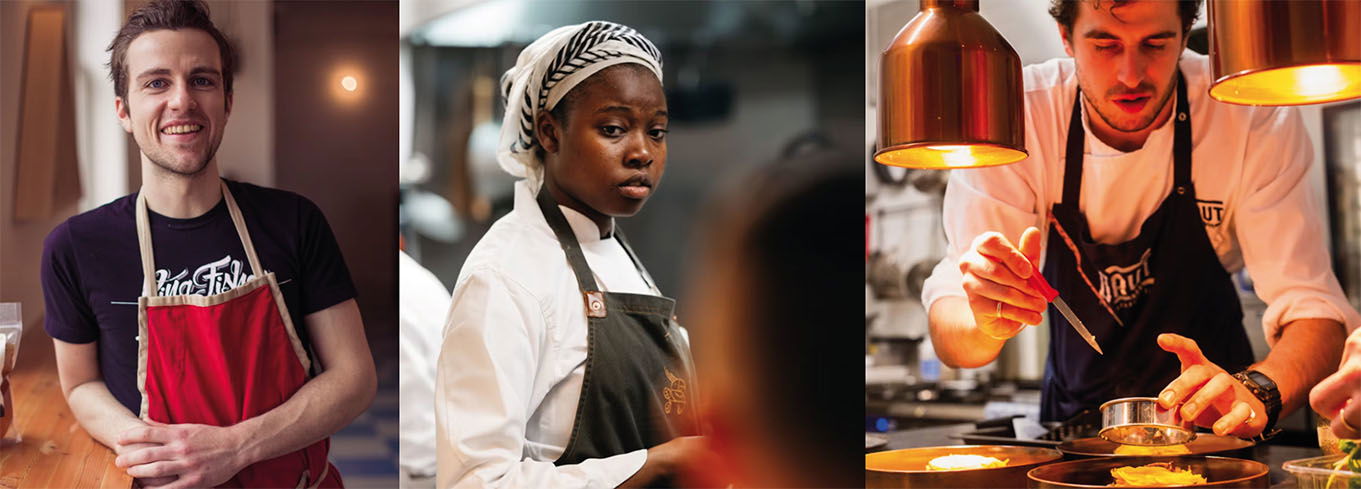ARE YOU A CHEF OR A COOK?
What is really the difference?
Ok I must admit, I absolutely love hearing this question when it gets raised. What I love about it is the absolute passion and anger it creates. It is like a ticking time bomb when someone throws that question into the room (or online). I sit back and wait for the barrage of bulls@it that will follow. I find it very entertaining.
Some professional chefs seem to believe being named as a cook is somehow a low representation of what they are capable of. I recently heard a chef bleating on as to how a chef is like a general, the cooks are like their soldiers. How he or she is like some mighty superhero carving the way for others to follow. Calling a chef a cook is the highest of insults! What a load of crap.
Allow me if you will to share my insight into this misconception with a couple of points of my own that will hopefully bring clarity to this crazy subject.
Now, I am a career long chef, cook and massive hospitality junkie. I am as passionate about my profession now as the day I entered the industry. I have nothing against the name chef; indeed, I am one of those very people. What I want to shoot down is the fact there is something somehow belittling about being named a cook.

Firstly, the biggest shock, not all chefs can cook
Thats right, many chefs and I have witnessed simply cannot cook. They possess no real passion for food, have no creative flair (more on that in a moment), They are not the kind of people that will rush home and try new recipes on their days off, read cookbooks for pleasure, eat out regularly, obsess over produce, seasonality, have food ideas in their dreams at night (guilty as charged) and call their butcher at midnight to get them excited about what they have just created (I am very sorry for those occasions Mr. Peter Allen). That said I have seen these types run brilliant kitchens. Clean, efficient, professional, strong managerial skills etc. They are proud chefs! I love these guys. I have worked alongside many. Some I have coached others I have learned a great deal from. Our industry needs these skills present in our kitchens to survive. They are great chefs!
Now some chefs can really cook too and are absolutely food obsessed. They are also capable of managing their teams perfectly. They are a rare breed. I do not think I have met one of these individuals that gets uptight if they are referred to as a cook.
Cooking is for life
Ok, so you can train to be a chef. Study hard and learn from the greatest chefs in this field (choose wisely budding stars), go on courses, learn the systems etc. and in a matter of years, you too will be a chef. I know I am oversimplifying but, let me make my next point. The being a Cook part is never ending learning process.
The better you are, the better you will want to be. The more you learn, the greater the thirst for knowledge. I have cooked next to some very impressive chefs that can cook and cooks that are amazing (but cannot chef). They all want to share; they all want to learn. It is a very addictive environment to be in and one I love. They listen more than they speak; they ask so many questions. This skill will be growing for life. Prepare to be obsessed!
Not all cooks are equal
Some cooks are highly creative

They cook and get ideas then put these into action. Some dishes hit the mark, and some do not (I could write a book the ones that never quite made it) I am often employed to help chefs with creativity, even foodie types. Everyone needs a little coaching to bring out the best in themselves.
Some cooks copy
There is absolutely nothing wrong with this breed of cook. We cannot all be highly creative. That said, these folks respect and understand what is being achieved and totally get the whole cooking process. They use their cooking senses and understand how flavours develop.
A side note on creativity
I have a saying. 'Never force creativity.'
Even if you are a food obsessed nut like me. There is a time and a place that your creativity will just kick in.
Do not sit there scratching your head trying to get the next great dish, nothing is that new anyway. I find by taking action and just hitting the stoves, even if you are doing a recipe by someone else, creativity will follow. A tip here I abide by. Let the main part of the produce be the star of the show, it must be the best version of itself, the rest will come naturally.
Not all cooks can call themselves chefs either
Look at some TV shows or social media for proof of this. Some wonderful food out there but put these guys into your kitchen on a busy night and you have a problem.
Some advice to young professional cooks today

If you want to be a great cook, you need to know that cooking is about using your senses. The touch, smell, feel, taste, look etc. You need to know how things are done this way before you dive into the world of modern cooking. I have nothing at all against cooking sous vide for example but trust me I wore the scars of old school pots and pans first.Imagine being able to roast a bird perfectly or cooking a steak without reaching for thermometers or gadgets. If you learn to use your natural senses first, then secondly learn how some of these gadgets may further enhance your food (or flow of service) you will be unstoppable.
I have my own way of looking for cooks within the walls of a professional kitchen. It either shows me that they have the right knowledge or natural ability, or I use it as a way of kick starting their foody senses. Thats all in the soup.

Let us take a vegetable-based soup for example. Onions are quite pungent and require some softening of texture and flavour, did they go in first and get treated with respect to build the required flavour?
Are we seasoning the ingredients as we add them to the pan, seasoning all at the end is very unnatural to me?
Does the pan stay clean during the cooking process? A quick deglaze with a few drops of water keeps the flavours on the vegetables and not stuck to the bottom of a pan.
What does the stock taste like before its added, is that the best it can be for this job? Is it added hot so not to arrest the cooking thus far? If blended, is it silky smooth?
Does one spoonful tell you exactly what it is and want you to go back for more? or does it spark the dreaded question, what is it? You get the picture right?
You see soup is deemed by many as the lowliest thing on the menu, it should never be the case. The term it's only a soup should be wiped out forever. The old saying, how you do the small things is how you do important things comes into play here. It's a great barometer of how a person cares for food and like I said a wonderful way to start to train to cook. It's about respect of the ingredients.
THATS MY RANT OVER FOR NOW
I hope you have enjoyed reading this as much as I have enjoyed writing it. Next time I will share how balancing your team can keep you in profit and keep you away from a blizzard of mediocrity.
Please feel free to leave comments to this rant or let me know if there were a subject you would like to hear my thoughts on.
Cheers
